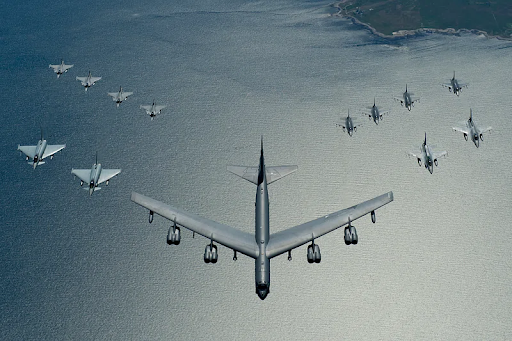The United States has confirmed the delivery to Taiwan of a sophisticated missile defense system valued at nearly $700 million that has demonstrated its capabilities defending Ukraine against Russian aerial attacks. This announcement marks the second significant weapons approval for Taiwan within just seven days, collectively bringing recent military sales to a total exceeding $1 billion. The decision reflects Washington’s continued resolve to enhance Taiwan’s defensive capabilities despite predictable opposition from Beijing and the broader diplomatic complexities in the region.
The system being provided is the National Advanced Surface-to-Air Missile System, offering medium-range air defense capabilities that will substantially upgrade Taiwan’s ability to counter aerial threats. Produced by American defense giant RTX, this technology will position Taiwan as only the third Indo-Pacific operator, joining Australia and Indonesia. The agreement encompasses three complete NASAMS units, which represent a component of a much larger $2 billion military sales package initially announced by the United States last year. According to Pentagon documentation, RTX has secured a firm fixed-price contract for the procurement and delivery of these systems, with the entire project scheduled for completion by February 2031, and funding of approximately $698.9 million being drawn from fiscal year 2026 foreign military sales accounts specifically designated for Taiwan.
The NASAMS platform has earned its reputation through actual combat deployment in Ukraine, where it has been instrumental in defending against Russian aerial assaults, showcasing its reliability and effectiveness under real-world conflict conditions. This proven track record has driven substantial international interest in the system, with demand increasing significantly among nations seeking robust air defense solutions. Speaking at an event organized by the American Chamber of Commerce in Taiwan, Raymond Greene, who functions as the United States’ chief representative in Taipei, declared that American commitments to Taiwan are rock solid and will continue to be so. He emphasized that Washington is supporting these verbal assurances with concrete actions, particularly through growing cooperation in defense industrial matters, all designed to help Taiwan pursue peace through demonstrated military preparedness.
The arms sale announcement comes shortly after another major approval last Thursday, when the United States government authorized the sale of $330 million worth of fighter jet components and aircraft parts to Taiwan. This marked the first substantial weapons transaction approved since President Donald Trump returned to office in January, generating expressions of appreciation from Taiwanese officials while provoking angry responses from Chinese authorities. China maintains its position that Taiwan is part of Chinese sovereign territory, a claim that Taiwan’s government categorically rejects, asserting its right to independent governance. These military sales are occurring during a period of heightened diplomatic friction that extends beyond just the Beijing-Taipei relationship to also involve Japan, as territorial disputes in the East China Sea create additional points of conflict.
The regional security situation has witnessed several concerning incidents in recent days. Chinese coast guard ships recently transited through waters surrounding disputed islands in the East China Sea that are administered by Japan but claimed by China, raising concerns in Tokyo. Furthermore, Japan deployed fighter jets after detecting a Chinese drone operating in the sensitive airspace between Taiwan and Yonaguni, Japan’s westernmost island, in what Japanese officials viewed as a provocative act. Taiwan’s Defense Minister Wellington Koo responded to these developments by calling on China to abandon force-based approaches to resolving disagreements. Taiwan is actively pursuing comprehensive military upgrades across multiple domains, including an ambitious initiative to build its own submarine fleet to protect crucial sea lanes that are essential for the island’s economic survival. Chinese military forces conduct operations around Taiwan on a near-daily basis, employing what Taipei describes as “grey zone” tactics intended to test the limits and exhaust the resources of Taiwan’s armed forces. Despite the absence of formal diplomatic recognition between the United States and Taiwan, American law mandates that Washington provide Taiwan with access to the weapons and equipment needed for its defense, a policy that remains a persistent source of tension in US-China relations.
$700M Battle-Proven Air Defense System Confirmed for Taiwan in Week of Major US Arms Deals
4
previous post

